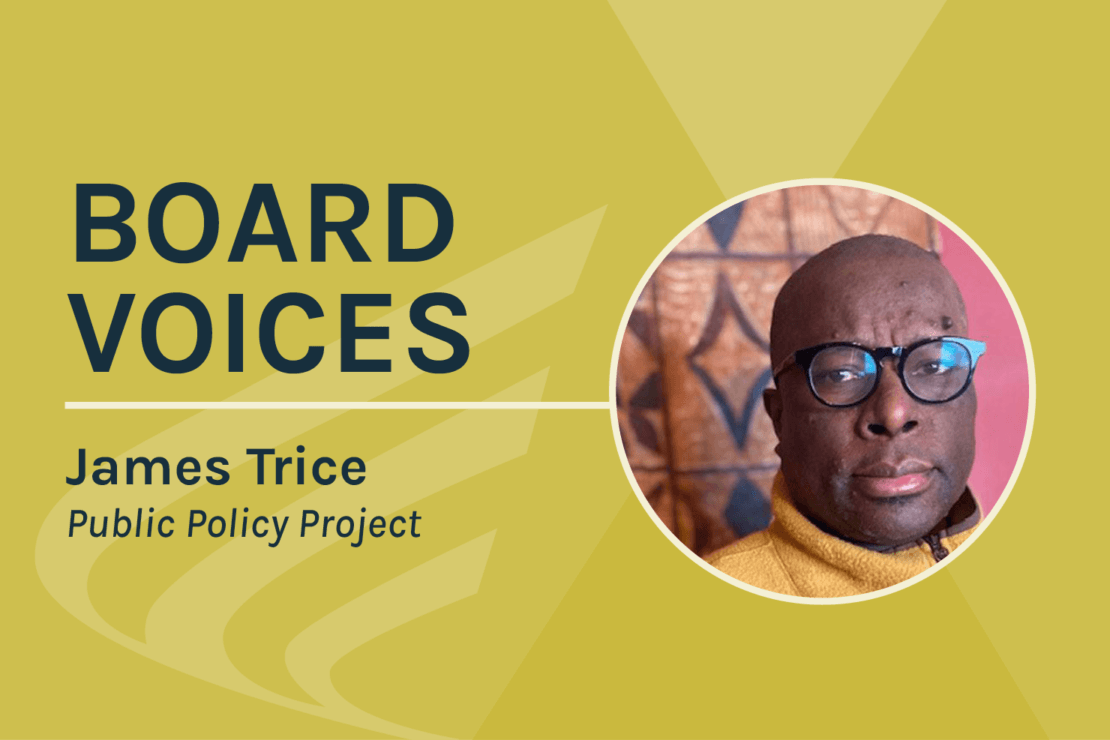Board Voices: The bumpy road to transformation

Black, brown, and Indigenous people suffer the most from environmental injustices. Factories, industries, and heavily trafficked roadways were built in our communities, forcing us to live with the polluted air, water, and soil that come from these hazards.
It can be hard to fight back on the pollution because some may just be grateful to have a home, even if there is toxic lead paint on the walls and it’s next to a factory that emits harmful emissions. Despite carrying the heavier burden, we are often left out of the environmental organizations working to make change.
My partner, Sam Grant, and I started the Environmental Justice Coordinating Council to change that. We challenge environmental organizations to undergo transformation to better reflect the communities they serve. In our work we recognize that white people are essential to make this change.
Environmental Initiative committed to working with us to change systems within the organization itself and how its employees engage with others outside the organization. They put their commitment into action over the past two years through the implementation of the organization’s strategic plan. The plan focuses on meaningfully engaging communities in environmental and social justice work with significant attention to those most impacted by environmental injustice.
Environmental Initiative is demonstrating what is possible for other environmental organizations. One example of that is through their collaboration with North Minneapolis residents. They are providing opportunities for youth to learn and engage with environmental careers through the Northside Safety NET internship program and are working to reduce environmental and economic injustices in the area in partnership with the Environmental Justice Coordinating Council.
The transformation has not been perfect, and there have been times I’ve been disappointed in Environmental Initiative. An example is found in hiring practices. Better serving the community starts with hiring Black, Indigenous, and people of color (BIPOC) people, the people most impacted by climate change and pollution. To do this, organizations need to ensure job postings are in places BIPOC people visit, are not too prescriptive, and avoid coded language. Environmental Initiative kept hiring white people because they were rushing the process and not taking extra time to ensure they reached our BIPOC communities. Their hiring team tried to be intentional, but they weren’t doing enough, and I was disappointed. I did not dismiss the organization though because the staff were open to constructive criticism. They recognize change is a process and have taken steps to ensure they are reaching diverse communities when recruiting and hiring applicants.
I’m on the board of directors because Environmental Initiative is demonstrating an openness to learning, a willingness to be part of difficult conversations, and is working to change systems in order to get it right for those who have been left out.
The organization sits in a messy middle where they are holding multiple truths: that the status quo needs to change and that they are going to lose some folks who do not agree with this transformation. The road to change is long and winding, but Environmental Initiative keeps moving forward in allyship, building new inclusive and lasting relationships, and ensuring communities are at the table.
Environmental Initiative staff and leadership are intentionally being a visible champion for BIPOC communities. I invite you to support the organization as they continue this journey of deep transformation.
Board Voices is a periodic series curated around a specific topic. The 2022 Board Voices explores board member’s relationships to the organization, board tenure, and reasons to support our work.